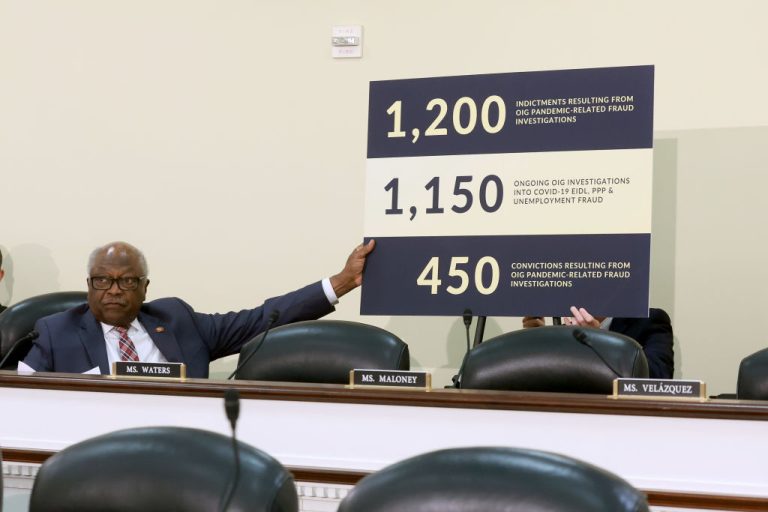A new Memorandum released by the Office of Inspector General (OIG) for the U.S. Department of Labor states that, based on new data received, a previous estimate of $16 billion in potentially fraudulent Coronavirus Disease 2019 (COVID-19) unemployment insurance claims was a startling $29.6 billion light.
Issued on Sept. 21, the Memorandum, which reads like an exposé on federal and state bureaucracy, states that the OIG alerted the Employment and Training Administration (ETA) in both February and June of the figure, which at the time stood at $16 billion.
After months of waiting and finally receiving updated data from various agencies, the figure was downgraded to a painful $45.6 billion.
The OIG noted that the fraud detected was primarily concentrated in four areas that arguably should have been simple to preempt when the programs were deployed:
- Claims filed in multiple states
- Claims filed by prisoners
- Claims filed by the deceased
- Claims filed by suspicious email accounts
The Memo states that the fraud occurred over a 25 month period spanning from March of 2020 to April of 2022, during which a staggering $872.5 billion in pandemic-specific UI funding was disbursed across the country.
Success
You are now signed up for our newsletter
Success
Check your email to complete sign up
The OIG criticized the ETA, stating that despite recommendations issued from its department in addition to data sharing, “As of the date of this alert memorandum, ETA has not taken sufficient action to implement these recommendations.”
The Inspector General also lamented that “we continue to experience delays in obtaining the needed UI data,” which they stated impedes “our ability to perform our statutory duty to effectively and timely conduct audits and investigations of the UI program.”
READ RELATED ARTICLES
- PA Gov Renews Campaign to Solve Inflation Woes With Another $2,000 Stimmie
- Pawn Shops Get Busy as People Sell Their Stuff to Pay for Gas, Groceries
- Army Tells Soldiers to Use Food Stamps as Inflation Derails Middle Class
- Almost 20% of US Households Past Due on Utility Bills
The OIG also regretted that the Federal Bureau of Prisons (BOP) declined to share federal prisoner data needed in its audit of COVID UI Claims, due to what the BOP described as “the burden created on BOP’s resources and technological platform, which BOP prioritized for BOP operational requirements.”
Additionally, the watchdog states it had likewise been roadblocked in requests for data from various State Workforce Agencies, resulting in a trio of subpoenas being filed from June of 2020 to August of 2021 against as many as 54 different bureaucratic offices.
However, potential fraud by federal prisoners and the deceased amounted to a comparatively meager $406,865,149 in siphoned COVID-19 stimulus money combined, a Memorandum table showed.
The largest source of larceny was by far multistate claimants, who collected a fresh almost $29 billion, followed next by suspicious emails, which were used to pad slightly more than $16 billion to fraudster pockets.
On the topic of suspicious email accounts, the OIG explained, “We found potentially fraudulent UI benefits were paid to individuals using Social Security numbers to file claims with suspicious email accounts.”
The Office added, “These particular account types enable users to establish email addresses that can hide personal information, including the user’s identity. The suspicious email addresses can also be used to apply for multiple UI claims.”
“Email service providers that supplied accounts offering anonymity were used extensively to file UI claims. In total, we determined 1,714,188 Social Security numbers associated with suspicious email addresses were used to file for $16.2 billion in UI benefits,” the Memorandum continued,
Not all such cases of fraud have gone unpunished, however.
Just days ago on Sept. 14, the U.S. Department of Justice announced it had charged an Atlanta couple with relocating $1.5 million in pandemic-related UI benefits to themselves by exploiting victims of identity theft.
The Press Release explained that the pair created fictitious employer accounts with the Georgia Department of Labor using stolen identities “who had no knowledge of the scheme and did not consent to the use of their information.”
The pair also used some of the dopplegangers to run the same scheme in California.
“The Georgia Department of Labor approved and paid UI claims through the issuance of debit cards mailed to various addresses in the metro-Atlanta area,” the DOJ stated, adding that the couple “withdrew the fraudulently obtained proceeds through transactions at retail stores, restaurants, and ATM cash withdrawals.”
Within a few months, the fraudsters grew tired of the labor involved in hijacking national money, and so the scheme simply devolved into depositing large sums of UI into a bank account for a shell corporation, which they began withdrawing from by putting themselves on the payroll.
In a secondary case, the DOJ announced on Aug. 25 that it had charged a former New York State Department of Labor employee, along with an internal co-conspirator, with a similar fraud scheme after the pair “abused their state computer systems access to create and approve false unemployment insurance applications.”
The duo had “recruited relatives, friends and friends-of-friends to submit false benefits applications over the phone,” while coaching their people on how to lie their way through an eligibility questionnaire.
Almost a million dollars was siphoned out of taxpayer coffers from one of the individuals charged alone.
In a third case, announced by the DOJ on Sept. 14, a 32-year-old California woman was charged after harvesting a half million dollars in pandemic UI relief to benefit herself “using the names of inmates locked up the California state prison system.”
















